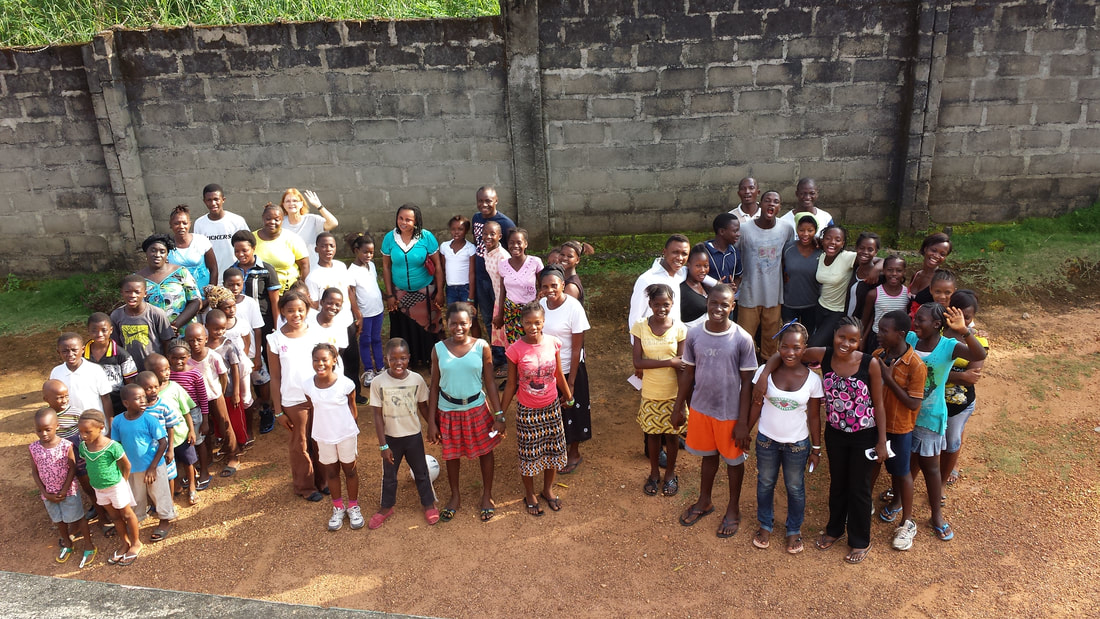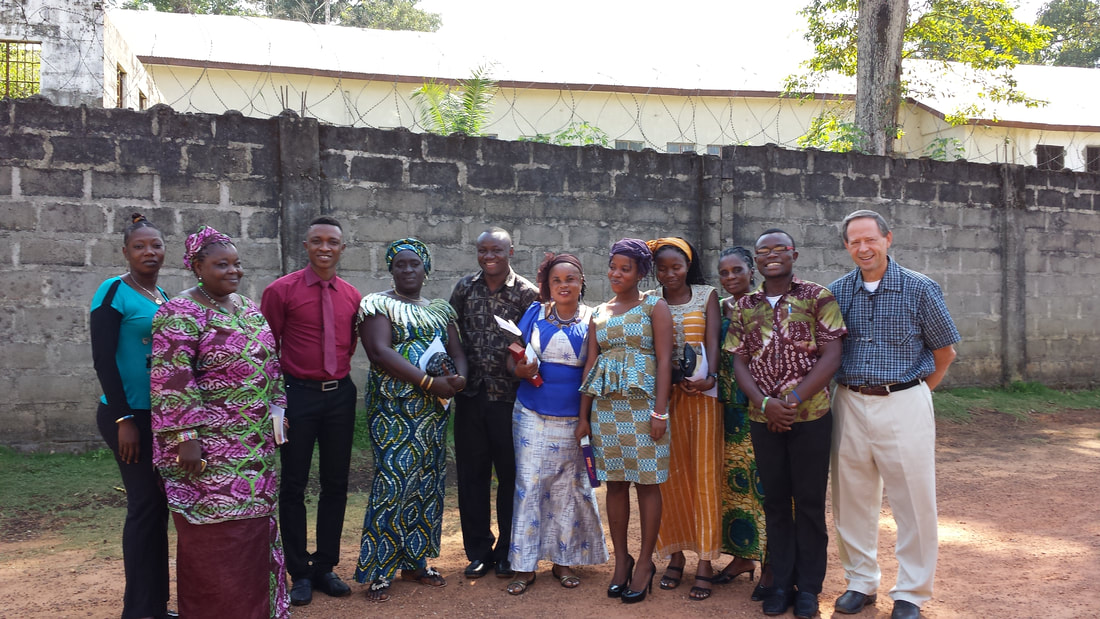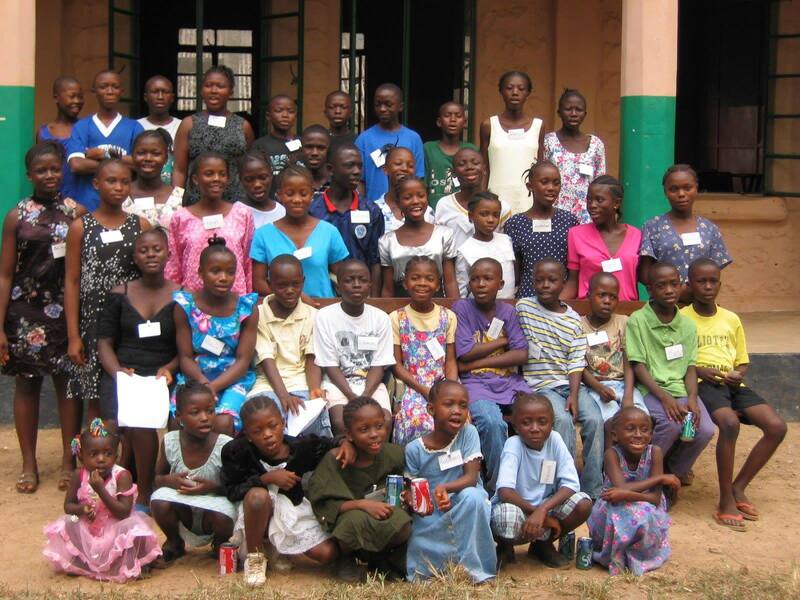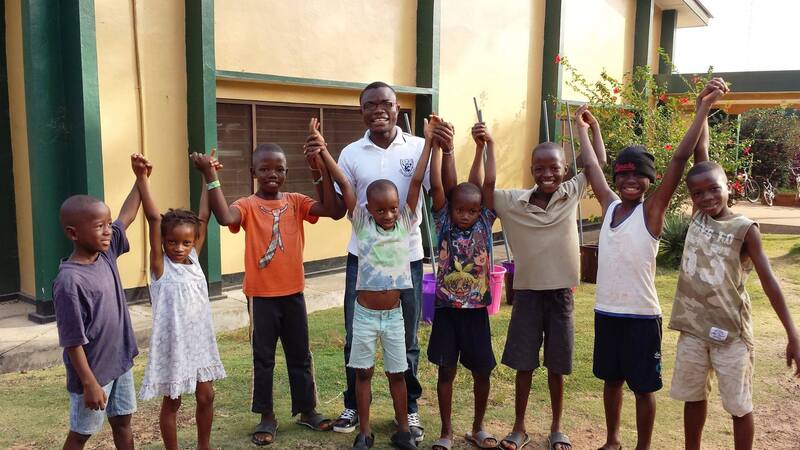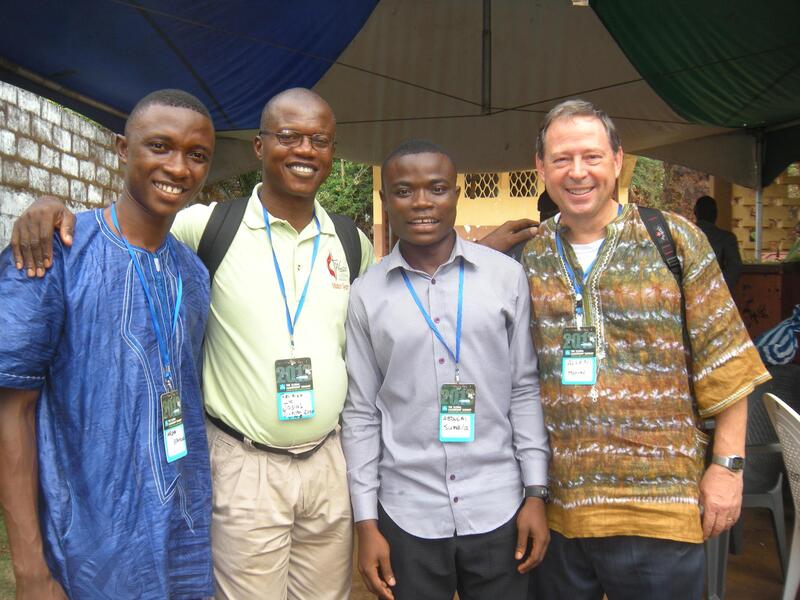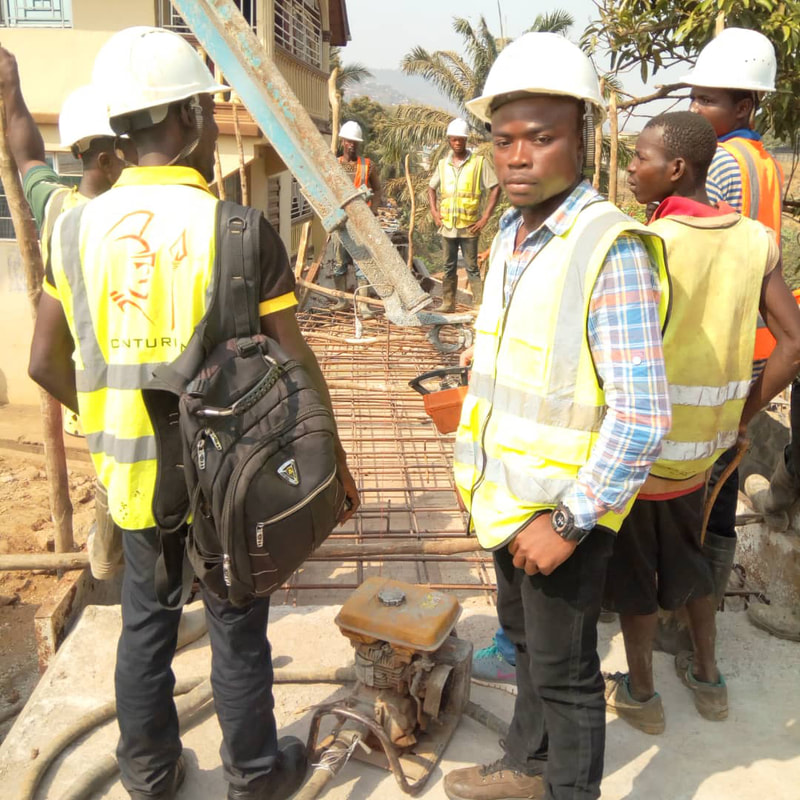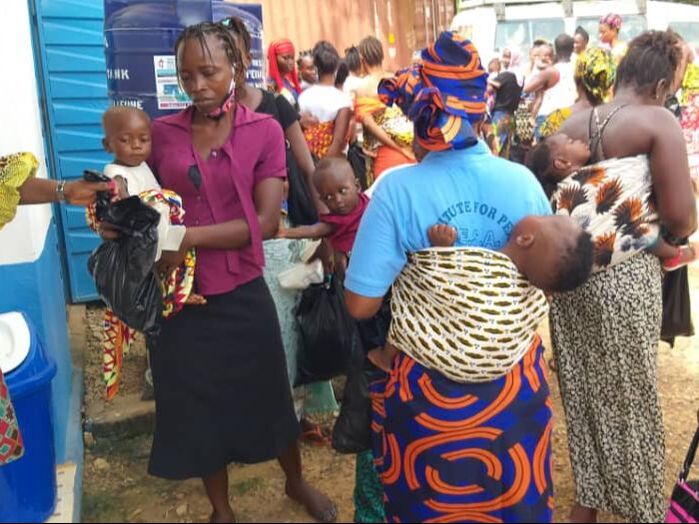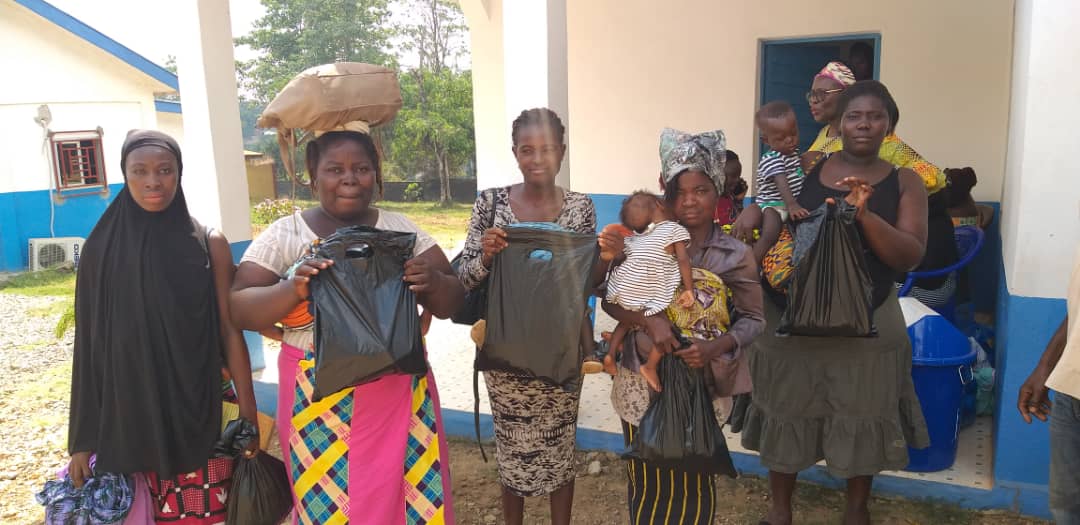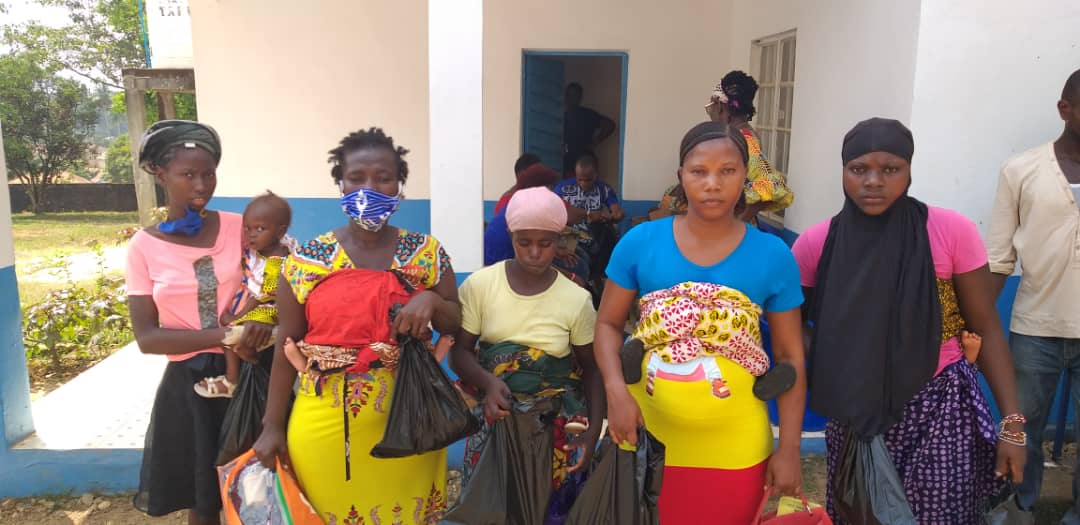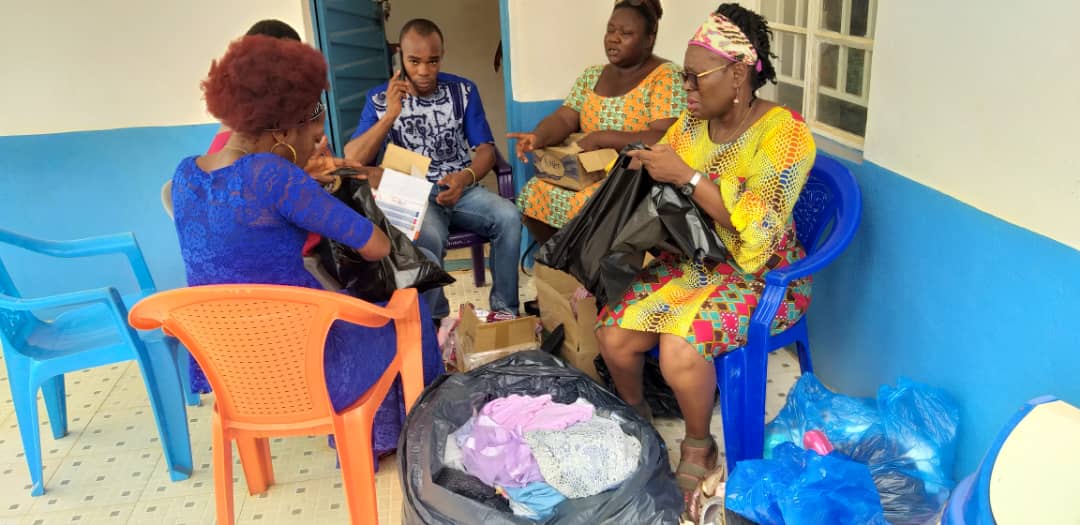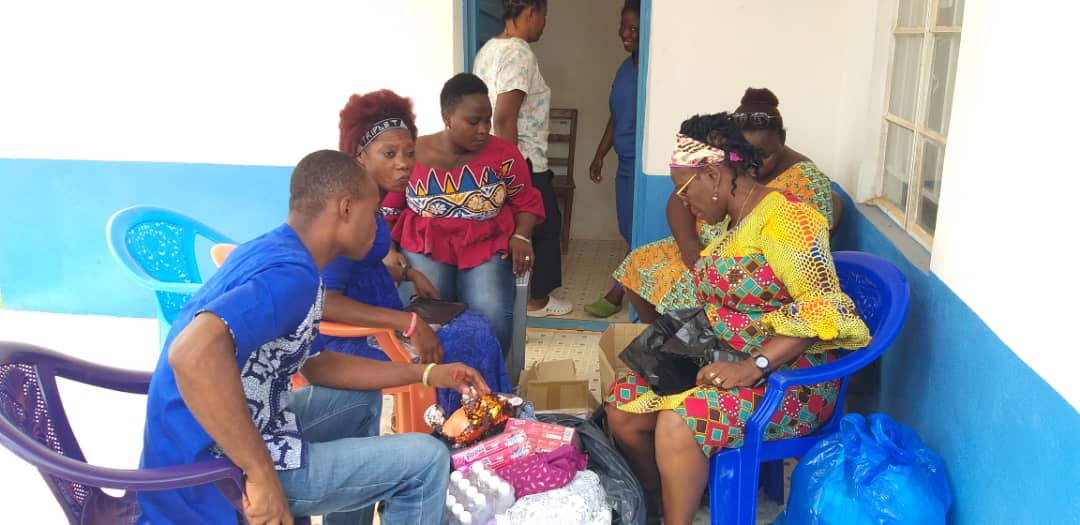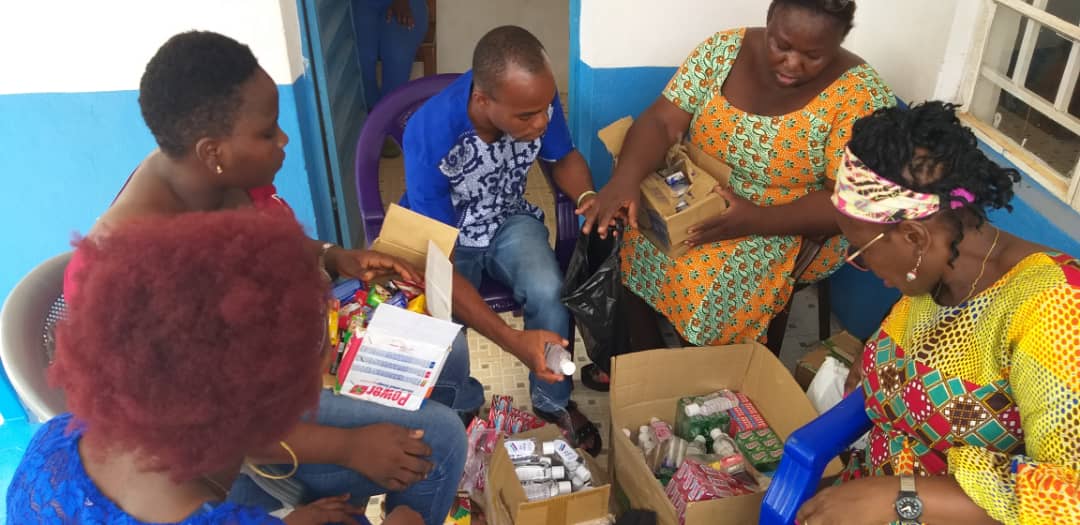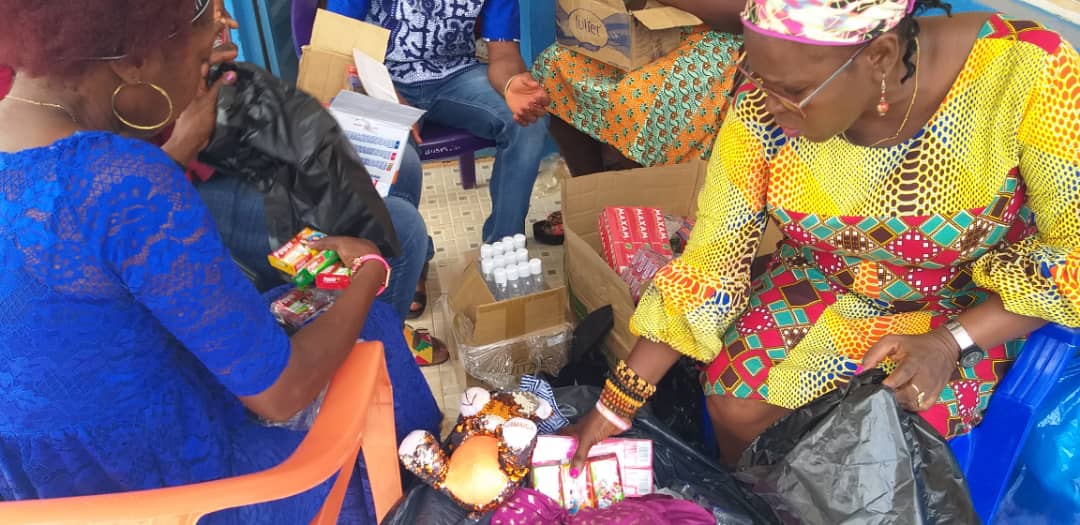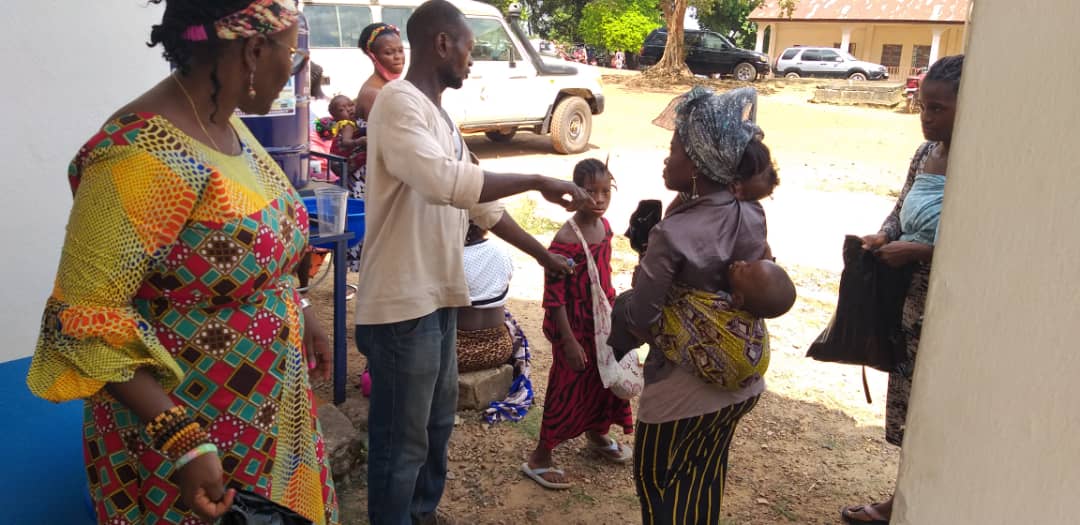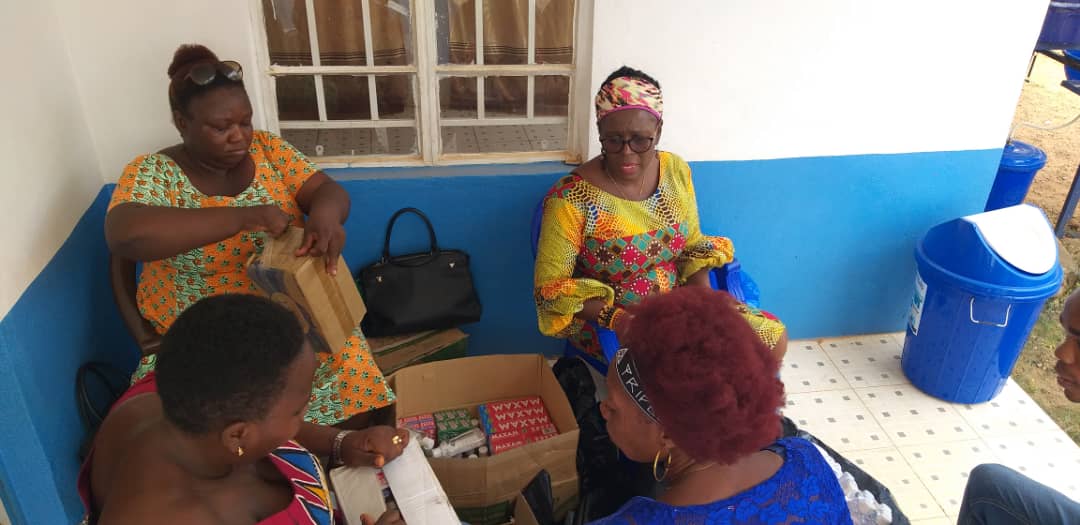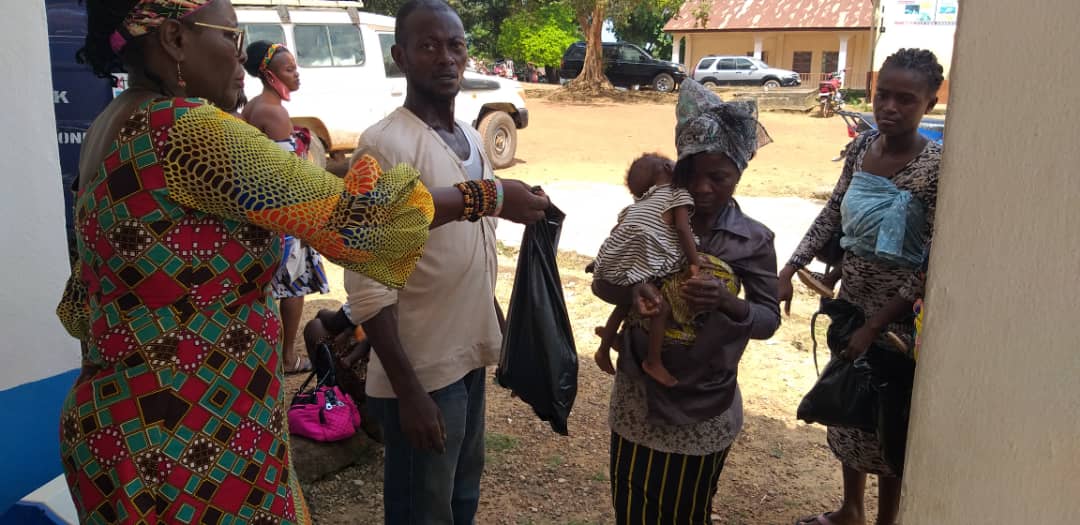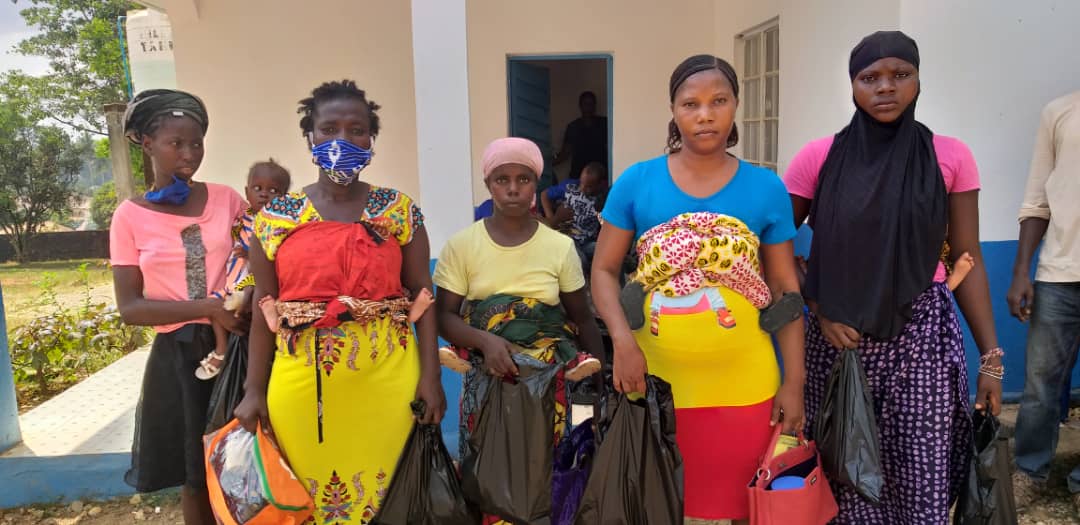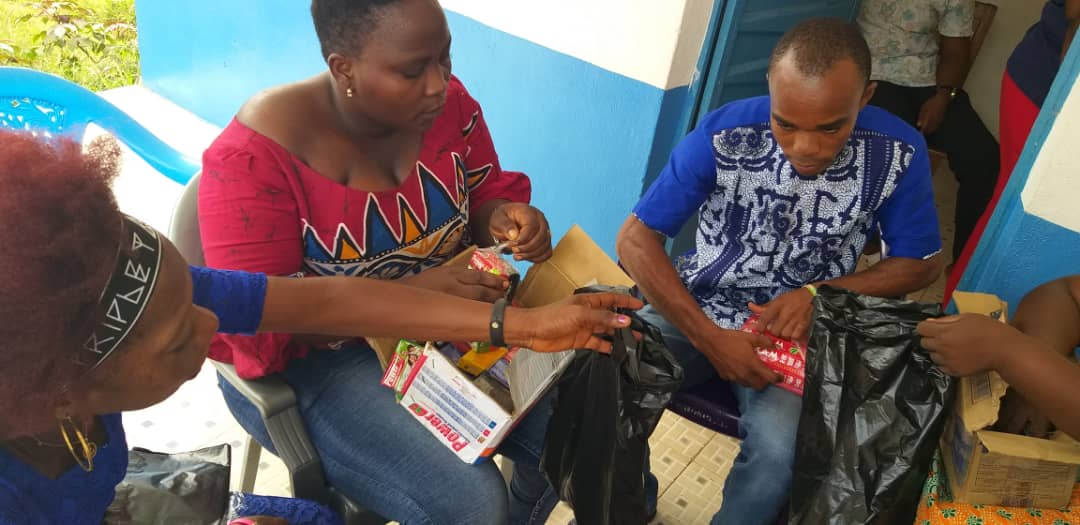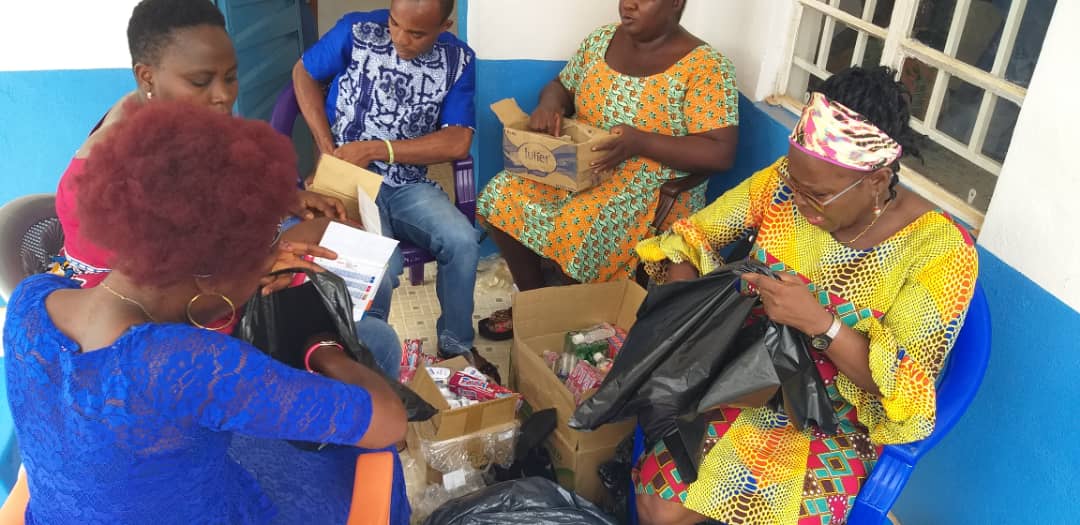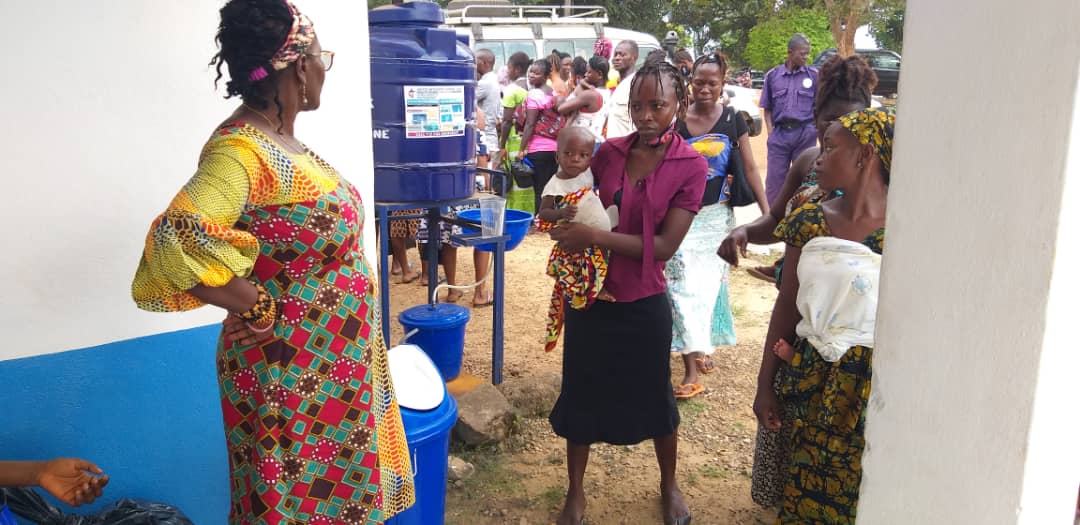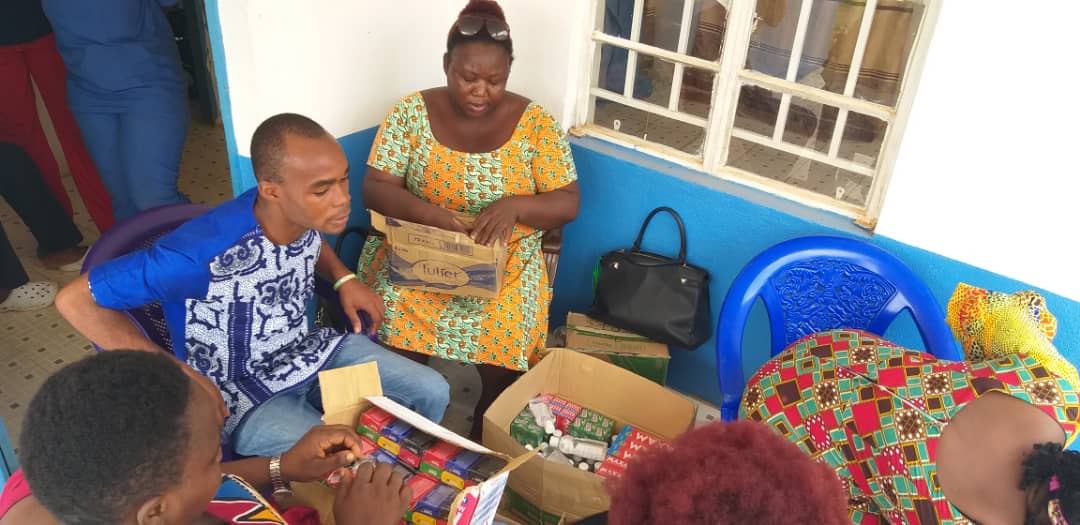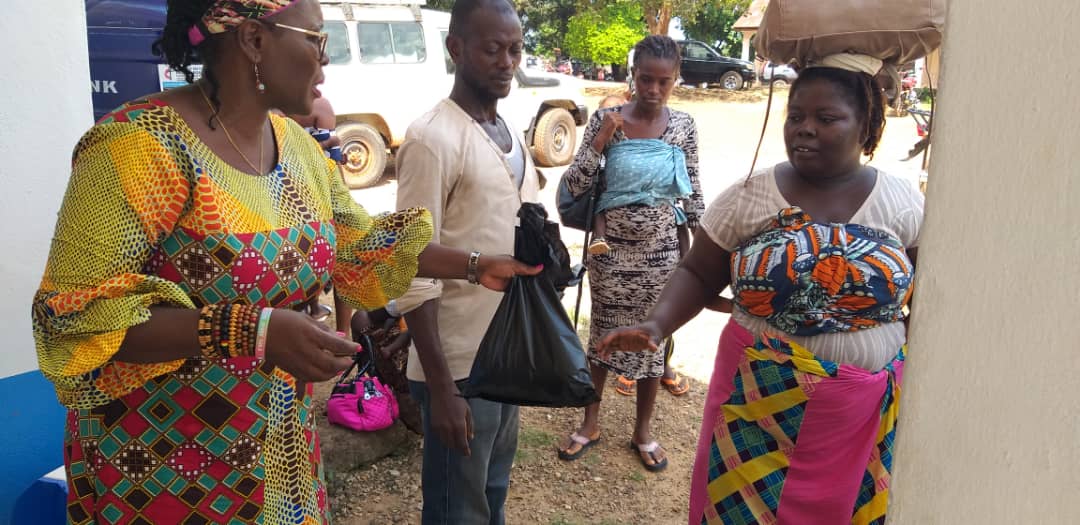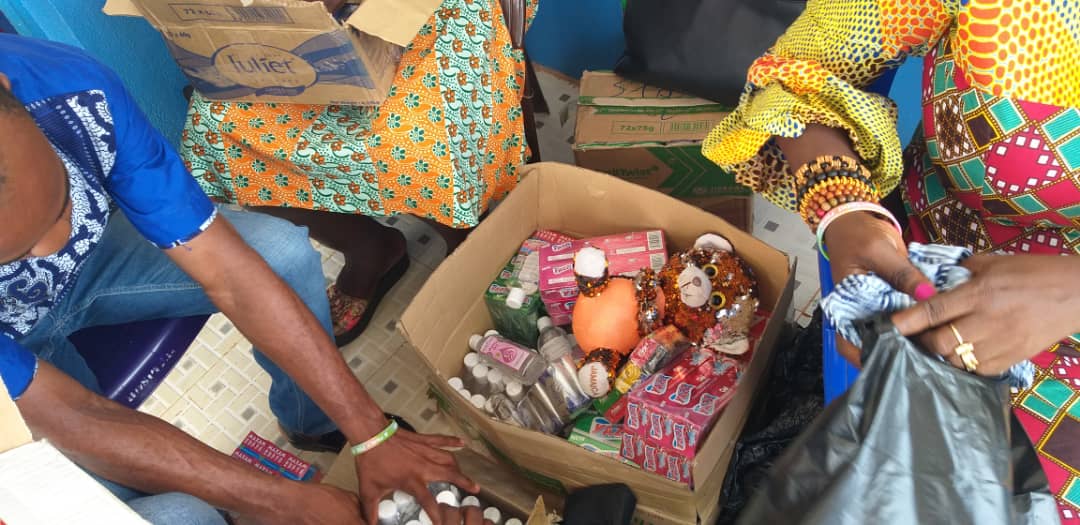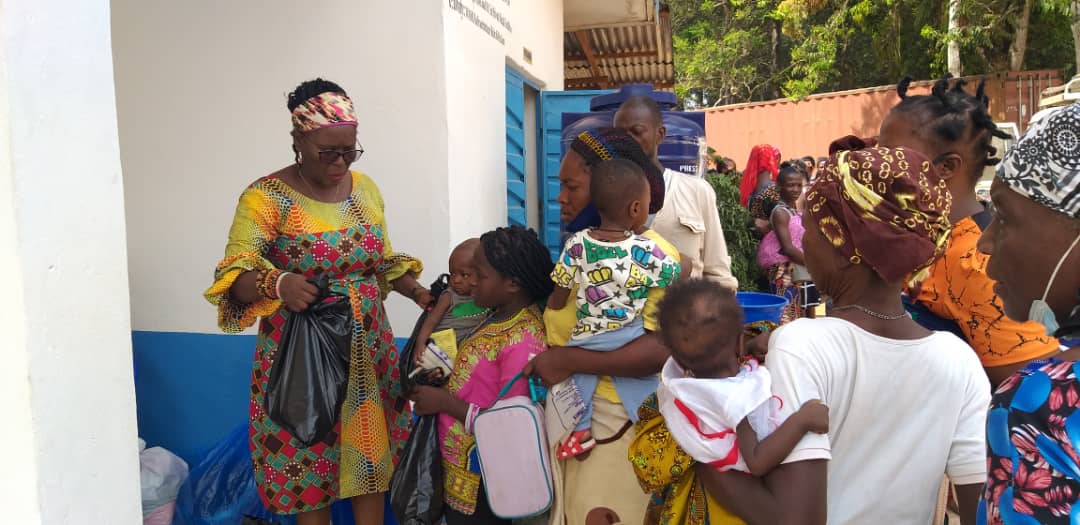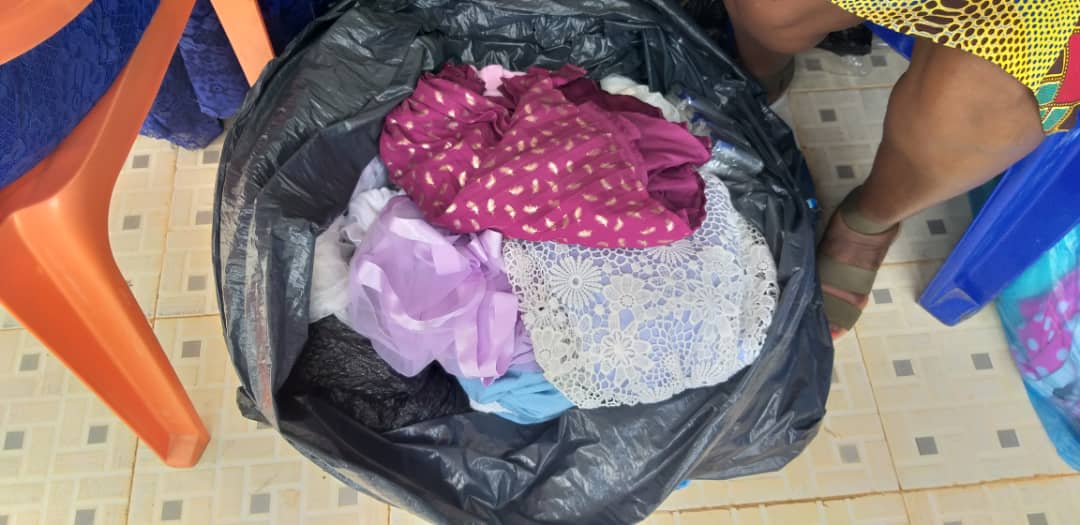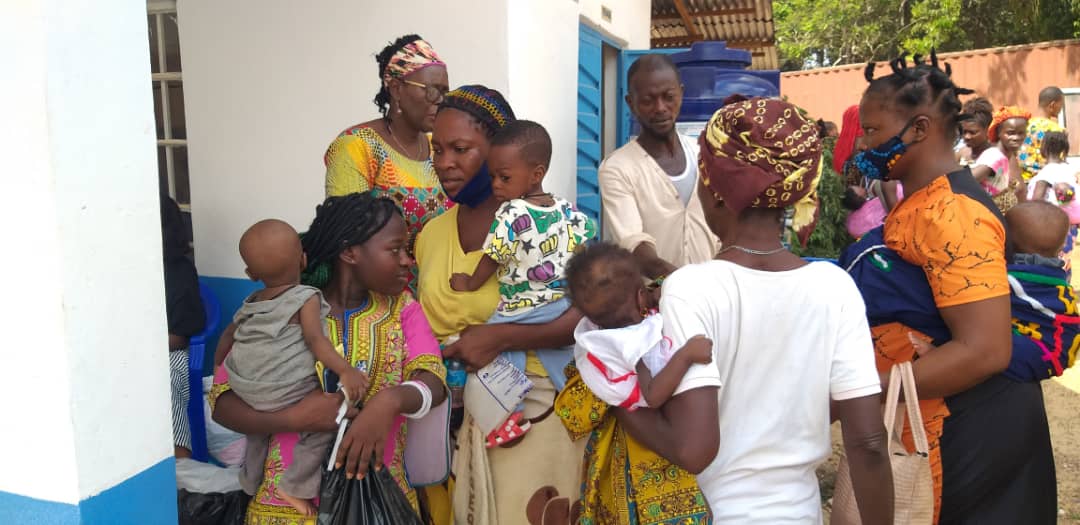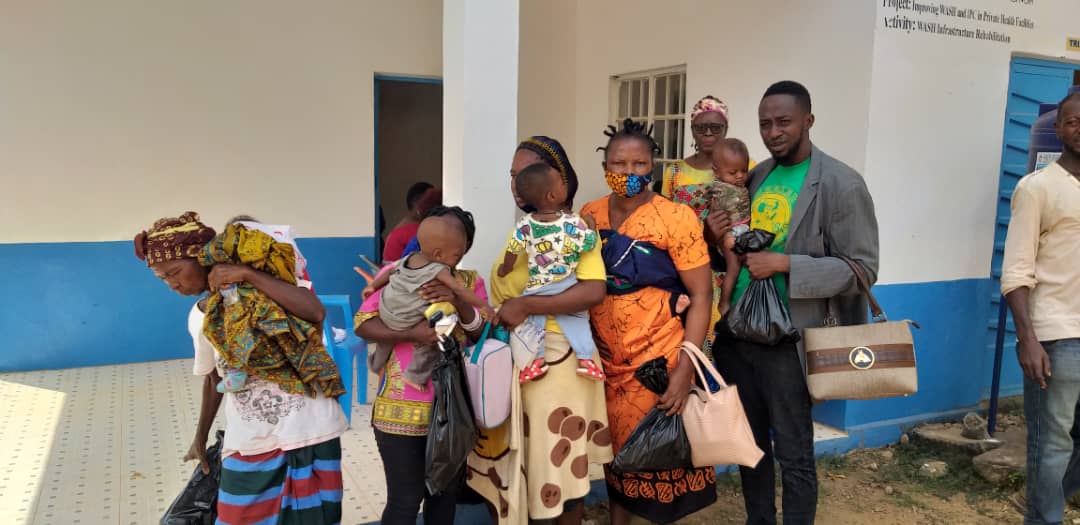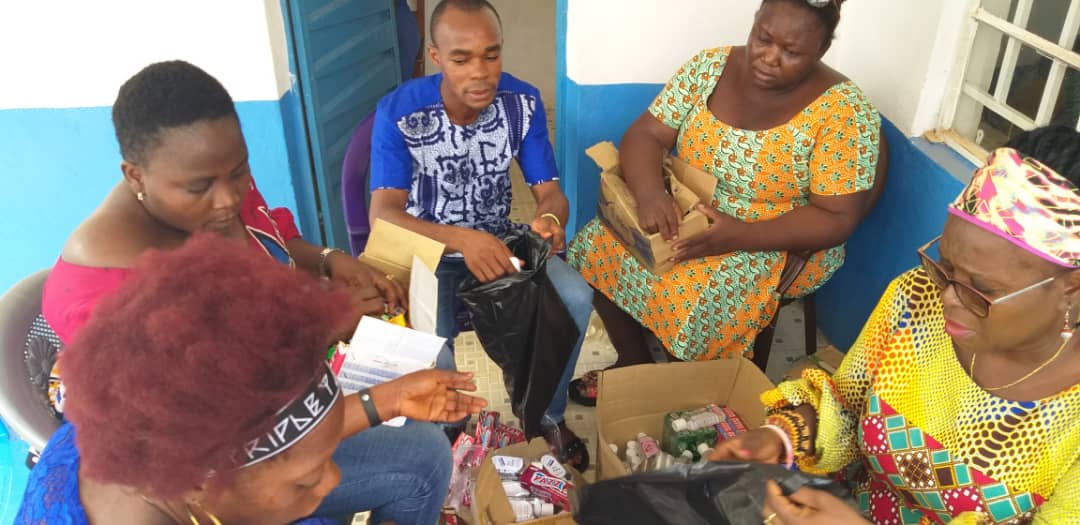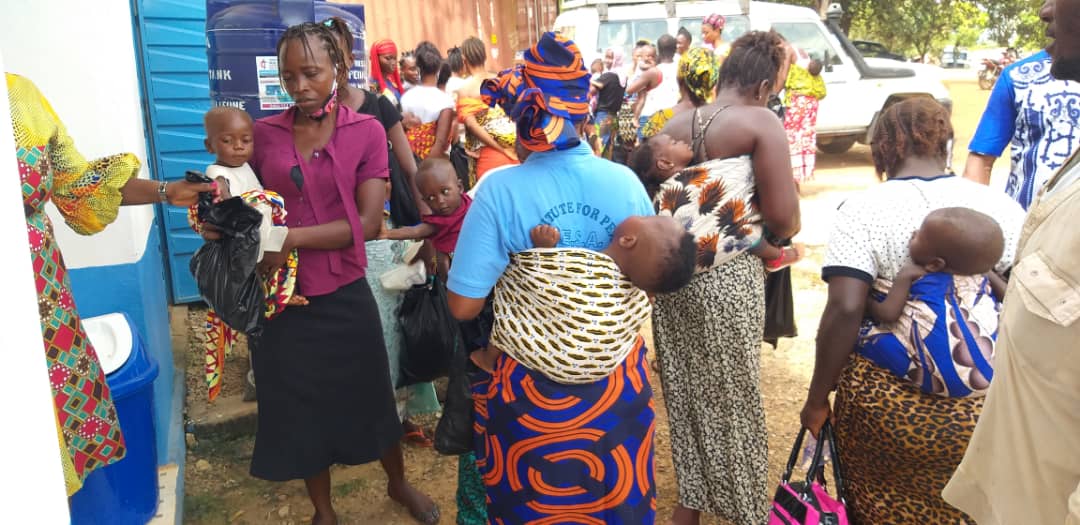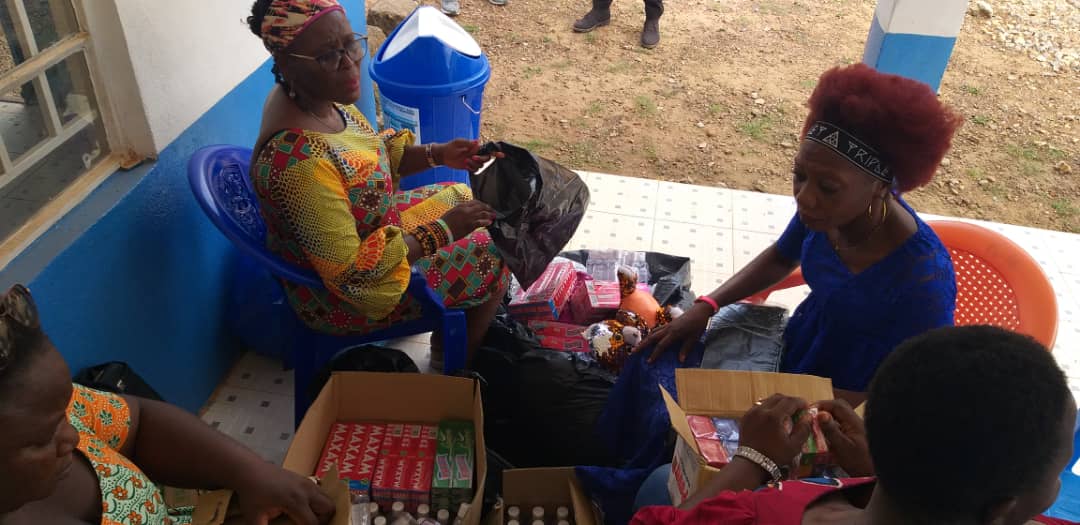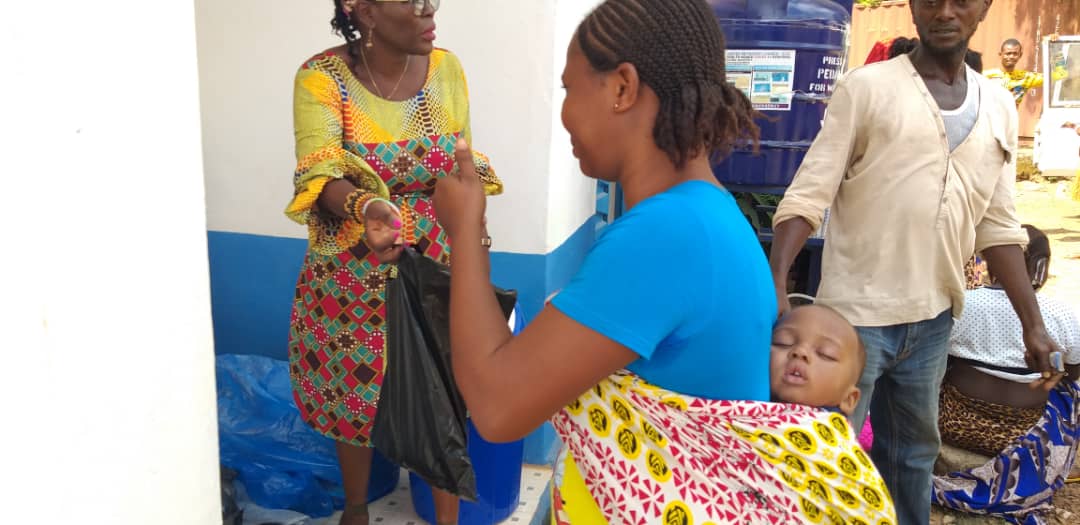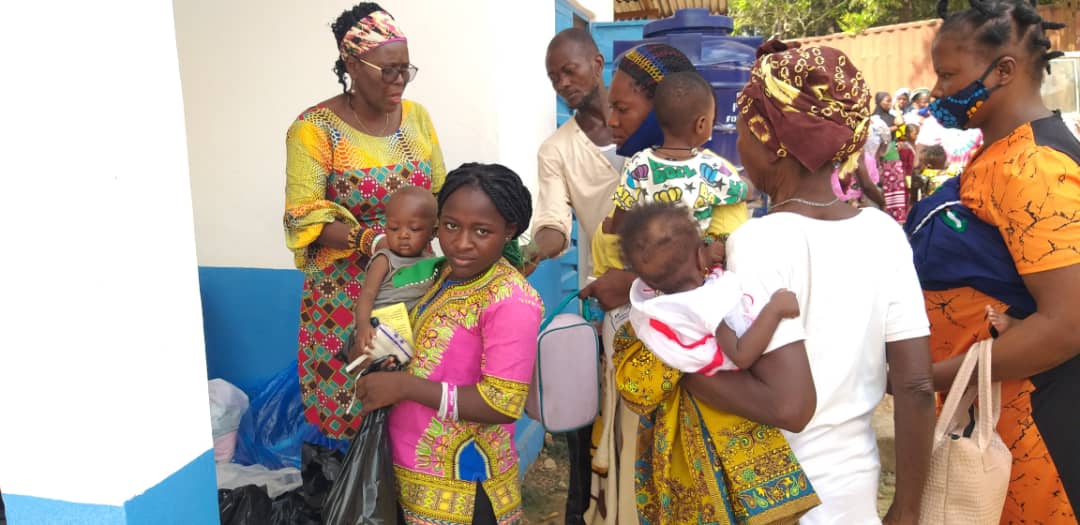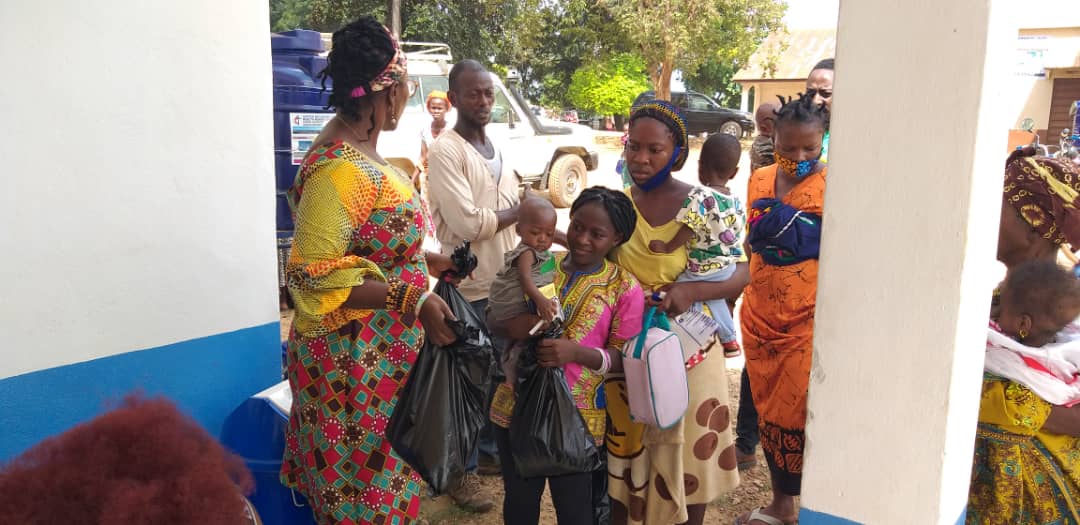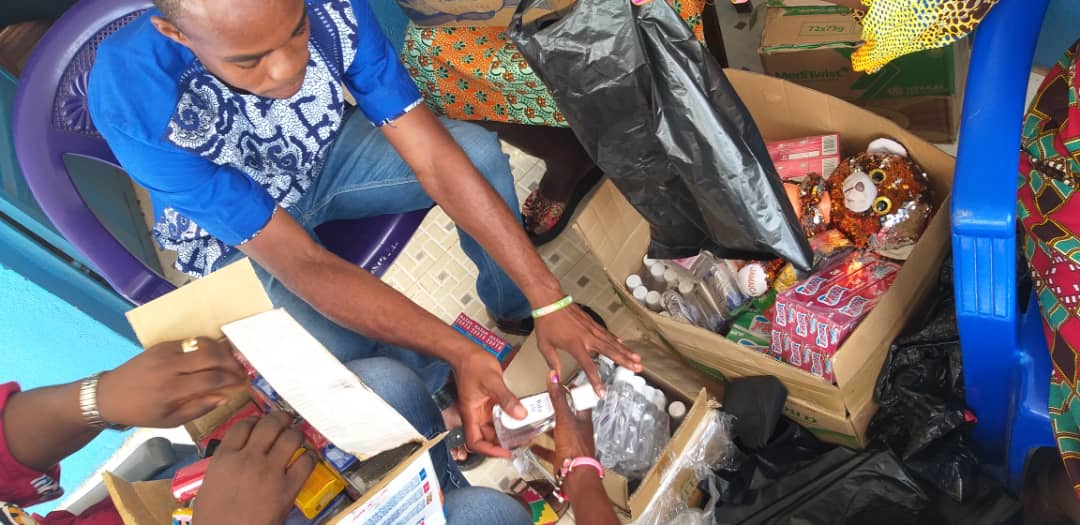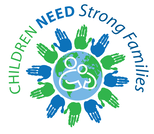|
During the Ebola crisis of 2014-2015, Patty and Allen Morell, long time missioners and partner church representatives for Osterville UMC, stayed with the children in the residential program to shepherd them through a very dark time. Here, the Morells share the scriptural principles that kept them going. The times in which we are living may feel very strange to most Americans. We got a good taste of how it feels to be quarantined for months at a time back in 2014 and 2015 during the Ebola Virus outbreak in Sierra Leone. When many international volunteers, NGOs, as well as some Sierra Leoneans themselves were leaving the country in fear of Ebola, we felt we could not desert our Child Rescue Centre family in Bo. We made a very prayerful and conscious decision to stay in Sierra Leone. In August 2014 with the blessing of the Sierra Leone UMC Bishop John Yambasu and Helping Children Worldwide, we went into lockdown with 44 Child Rescue Centre resident children, and 9 CRC staff plus 5 security guards, all who volunteered and committed to live inside the compound 24 hours per day, not knowing how long the Ebola Virus might be active in Sierra Leone.
How did the CRC keep 60 people in lockdown for eight months safe and healthy, keep up everyone’s spirits, as well as prevent boredom? It was accomplished in ten very intentional ways.
When the lock down ended on April 22nd, 2015, after the entire country had gone through 42 consecutive days (2 cycles) of no new cases of Ebola, the CRC gates were enthusiastically opened and all of the staff returned that day for Wednesday Afternoon Devotions. Together we celebrated this joyous, long anticipated occasion! We all sang a song called, “Together Again.” There was not a dry eye in the Great Hall. The next day all of the CRC Aunties left the compound for the first time in eight months, to go home to their own families. Other CRC women staff volunteered to stay with the children that night. The commitment of the devoted CRC staff and security guards was remarkable and totally selfless. The CRC children and staff, and all Sierra Leoneans who lived through the Ebola outbreak in 2014 and 2015, have an amazing testimony to share. While the Ebola crisis was tragic on so many levels, we will always remember that time spent with our CRC family with great fondness. This article originally appeared in the HCW December 2020 magazine.
0 Comments
I told my family I would become an engineer so I could help rebuild." In Abdulai Sumaila’s home village of Bumpeh,a small town in the southern province of Sierra Leone, most families survive on subsistence farming, as they have for decades. Farming is the mainstay of rural families who mostly grow rice and cassava for their own consumption (Source: USAID.) In Bumpeh, school was not a high priority for children, who are needed to help in the fields. Abdulai and his five siblings enjoyed a simple life with their parents, who augmented their meager farming income by teaching and petty trading.
When the chaos of the civil war came to Bumpeh, Abdulai and his siblings were separated from their parents, leaving them to be raised by various relatives who used them for farm labor. “I would wake up at 4 AM and go to the farm,” Abdulai remembers, “I could only return back home in the evening.” During that desperate time, the family was focused solely on survival. School was out of the question for the children. Eventually the siblings learned that their parents had died, and their uncle and grandmother took sole responsibility for them. When the war finally ended in 2002, a field supervisor from the newly launched Child Rescue Centre (CRC) who had an affiliation with Bumpeh came there to investigate the welfare of the children. Most of the villagers were desperately poor and wanted their children to go to the CRC, where they believed they would have a chance at a better life and the opportunity to go to school. “In the village there were a lot of children in need. The only chance I had over the rest of the children is that they saw potential in me,” Abdulai says. After many meetings with the village chieftains, it was decided that seven children from the neediest families would go live in the CRC’s residential program, including 10-year-old Abdulai, who was the youngest in his family. Abdulai’s uncle vehemently opposed his admission to the CRC. But Abdulai’s grandmother wanted him to go to school and her will prevailed. Abdulai became one of the original 40 children taken in as residents at the CRC. In spite of missing several years of school, he skipped ahead to Class 3, then skipped again to Class 5. After passing the National Primary School Examination with a high score, Abdulai was admitted to the prestigious Christ the King College, an all-boys school near the CRC, along with several other CRC boys. In many ways, Abdulai loved his new life in the residential centre, and his memories are mostly happy. “Growing up at the CRC my life was full of curiosity and innovation,” Abdulai says. But he missed his family and the warmth of the village community. “The lifestyle [at the CRC] was very different,” he says. “A lot of the things I enjoyed with my family weren’t available, like gari (cassava meal) and kanya (peanut sweets.)” More than anything or anyone else, he missed his grandmother, the one who always believed in him. “My grandma was the only one I felt close to and she couldn’t afford to come to the city,” he says regretfully. Sadly, she died four years ago. “I’m very sad that she’s not alive to enjoy the benefits of me going to the CRC. What my family thought was evil turned out to be for good.” Abdulai is grateful for the opportunity he was given to get an education and pursue his dream, something he doesn’t feel would have been possible if he had stayed in Bumpeh village. “If I stayed with my family, I would have had no opportunities. My family lives far from civilization. And at the CRC, I got the opportunity to learn about Jesus Christ.” Of the six children in his family, he is the only one that went to school beyond the primary grades. “All of them quit by class 5 or 6 and ended up in farming or trading or mining,” he says. Growing up in the residential centre, Abdulai was aware that he was different from the other kids at his school, and he felt a keen obligation to become someone who could make a difference for his village of Bumpeh. “I felt a lot of responsibility. I got to visit my hometown and observed things that were very hurtful--the structure my family lived in, the famous bridge destroyed by the rebels in the civil war. The beautiful houses burned down. It made me think ‘who is going to rebuild these?’ The bridge in my home town was so dilapidated, residents can only use the boats to cross the water, and I’m a person who is very afraid of water! I told my family I would become an engineer, so I could help rebuild.” Propelled by that dream, Abdulai earned a scholarship to study civil engineering at Fourah Bay College in Freetown. Moving to the big city of Freetown was a major culture shock for Abdulai. “I was not too acquainted with the lifestyle or location. I had no clue where I was going. Everything must be planned and executed by me alone. Waking up early, cooking, doing laundry, and managing my own time. I was forced to embrace hard living outside the CRC,” he says ruefully. Abdulai met his wife, Aminata, through Navigators Christian Club at university. She graduated from Fourah Bay College with a degree in philosophy and law. They were married in 2019 and this year welcomed a baby girl to their family. “After graduating university, in Sierra Leone culture I became the head of my family,” Abdulai says. “I am holding to my dream to continue to provide quality professionalism in every task I am involved in, for the benefit of my country. I have worked as a supervisor on construction projects like hospitals, schools, commercial and residential structures on both a voluntary and paid basis. I hope one day I can be in a top national position, where I can use my technical skills and spiritual insights to transform the lives of others in Sierra Leone.” Abdulai wants to be a role model for young Sierra Leoneans, with this advice for the next generation: “Young people should believe in their dreams and work hard to see those dreams fulfilled. Know the Lord Jesus, be humble, and respect the older generation,” he says. His grandmother would no doubt be very proud of her grandson the engineer, who is helping rebuild Sierra Leone. This article originally appeared in the HCW December 2020 magazine. Victor Kanu, Child Support and Family Care Programme Assistant The CRC staff noticed that the children coming to Mercy Hospital for the monthly nutrition clinic were in need of clothes and other essentials. The staff decided to complement Mercy Hospital’s work by providing toiletries and clothing for these vulnerable children. Eighty children identified by Mercy Hospital as especially needy were provided with clothing, toilet soap and toothpaste. Before the distribution, the director prayed for the mothers and children. She told them about the work the CRC does, and the number of lives they are touching in Bo, Kenema, Kono, Freetown, Moyamba, and other communities. The mothers were very happy to receive the gifts. “I am very grateful to CRC for these gifts. It is very difficult to have food, much more getting clothes, ” one mother told the staff. “Thank you very much, especially for these toiletries. You have put smiles on our faces," another mother said. "We appreciate you greatly. My child now has Christmas clothes." “Today is a big day for me. I have not only received food for my child, but also toiletries and clothes. Thank you God. Thank you CRC. I pray that God give you more money to do more. May God bless your own families.” |
Follow us on social media
Archive
July 2024
Click the button to read heartfelt tributes to a beloved Bishop, co- founder of our mission!
Post
|
Helping Children Worldwide is a 501 (c) 3 nonprofit organization | 703-793-9521 | [email protected]
©2017 - 2021 Helping Children Worldwide
All donations in the United States are tax-deductible in full or part. | Donor and Privacy Policy
©2017 - 2021 Helping Children Worldwide
All donations in the United States are tax-deductible in full or part. | Donor and Privacy Policy

